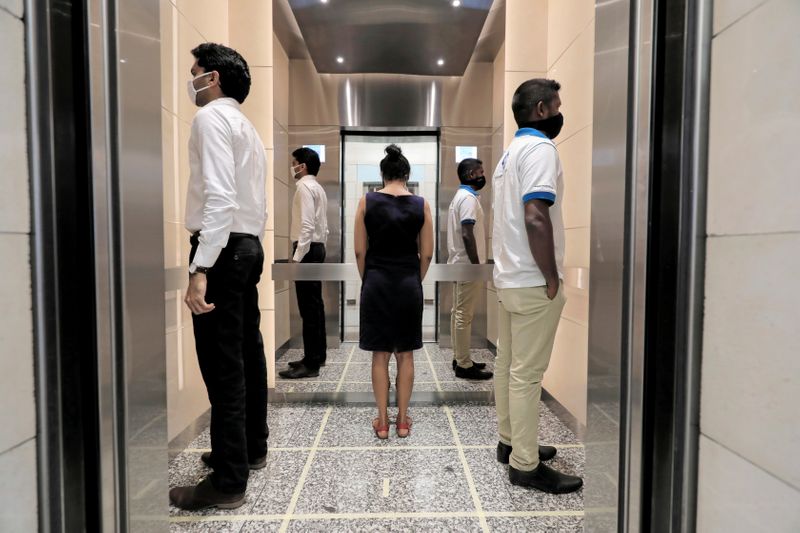NEW YORK (Reuters) – The percentage of workers around the world that is permanently working from home is expected to double in 2021 as productivity has increased during the coronavirus pandemic, according to a survey from U.S.-based Enterprise Technology Research (ETR).
ETR in September surveyed about 1,200 chief information officers from around the world across different industries.
The CIOs also expressed increased optimism about business prospects in 2021, as they see an increase in tech budgets by 2.1%, compared with a 4.1% decline this year due to the lockdowns triggered by the pandemic.
The survey said information technology decision-makers expect permanent remote work to double to 34.4% of their companies’ workforces in 2021, compared with 16.4% before the coronavirus outbreak, a result of positive productivity trends.
About 72% of their companies’ total global workforce is currently working remotely, according to the CIOs.
Of the more than 1,000 CIOs interviewed for the survey, 48.6% reported that productivity has improved since workers began working remotely, with only 28.7% of respondents indicating a decline in productivity.
IT divisions in telecommunications, financials and the insurance sector reported large productivity boosts, whereas there has not been much benefit in energy, utilities, and education sectors.
“The productivity metric is proving that remote work is working,” Erik Bradley, chief engagement strategist at ETR, told Reuters in an interview.
“So we all thought that there would be some increase in permanent remote work, but we didn’t expect that to double from pre-pandemic levels. There would be huge ramifications of this in a lot of areas, whether that is real estate, retail, restaurant or transportation.”
The survey also showed that more CIOs were upbeat about next year’s outlook. They are optimistic that IT budgets will increase, that they can reduce hiring freezes, and that they will be able to start doing IT projects again.
(Reporting by Gertrude Chavez-Dreyfuss in New York; Editing by Matthew Lewis)
























